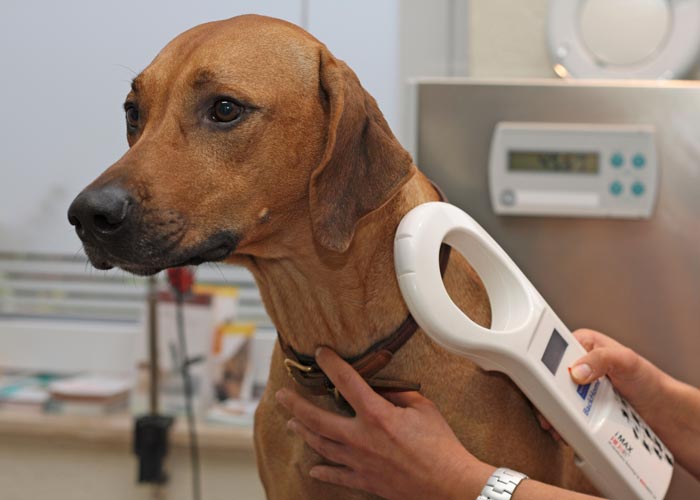
By Heather Nokes
There are several reasons a pet may get lost: bolting out an open door, sneaking under a fence, or just simply wandering off. If this were to happen to you, how would you respond? Most pet owners would worry about the well-being of their pet, and rightfully so! Some relief may be found in remembering they have a collar or ID tag on but there is a chance those could come off.
This is where a microchip comes in.
What is a microchip and how does it work?
A microchip is a small glass cylinder (about the size of a grain of rice) that contains a chip activated by a scanner. When scanned, the chip presents a unique number which is known as the microchip number. Therefore, when a lost pet is located, any veterinary hospital, shelter, or rescue is able to scan them with a universal scanner. If a chip is located, the scanner will beep and display the unique number on the screen. This number can then be input into any microchip website and the contact information registered to the chip will display.

Can you track your pet with a microchip?
The short answer is no. Because the chip can only be activated by a scanner, it cannot be located virtually.
How can you get your pet microchipped?
Your veterinarian should be able to implant your pet with a microchip at your next visit! If for some reason you cannot get one at your vet or it is too costly, most shelters and humane societies have them available for a low cost and may even administer them for you. Most people trained properly in animal care are able to safely implant a microchip.
How is a microchip implanted?
The procedure itself is simple. The microchip is incased in a sterile syringe with a needle on the end. The needle is inserted just under the pet’s skin, often between the shoulder blades. The syringe is then pushed which plunges the microchip under the skin. Simple as that! The pet often only feels a slight pinch during this time, not much different than getting blood drawn. Once the microchip is under the skin, the pet cannot feel it.
What else is there to know about microchips?
- There are several companies that make microchips but no matter which one you choose, a universal scanner will be able to scan them all.
- Some microchips have technology where they can gauge the body temperature of the animal.
- Microchip registries can make it easy to keep track of your pet’s health records.
If you are still not convinced that microchipping your pet is the right decision, ask your veterinarian for more information.
